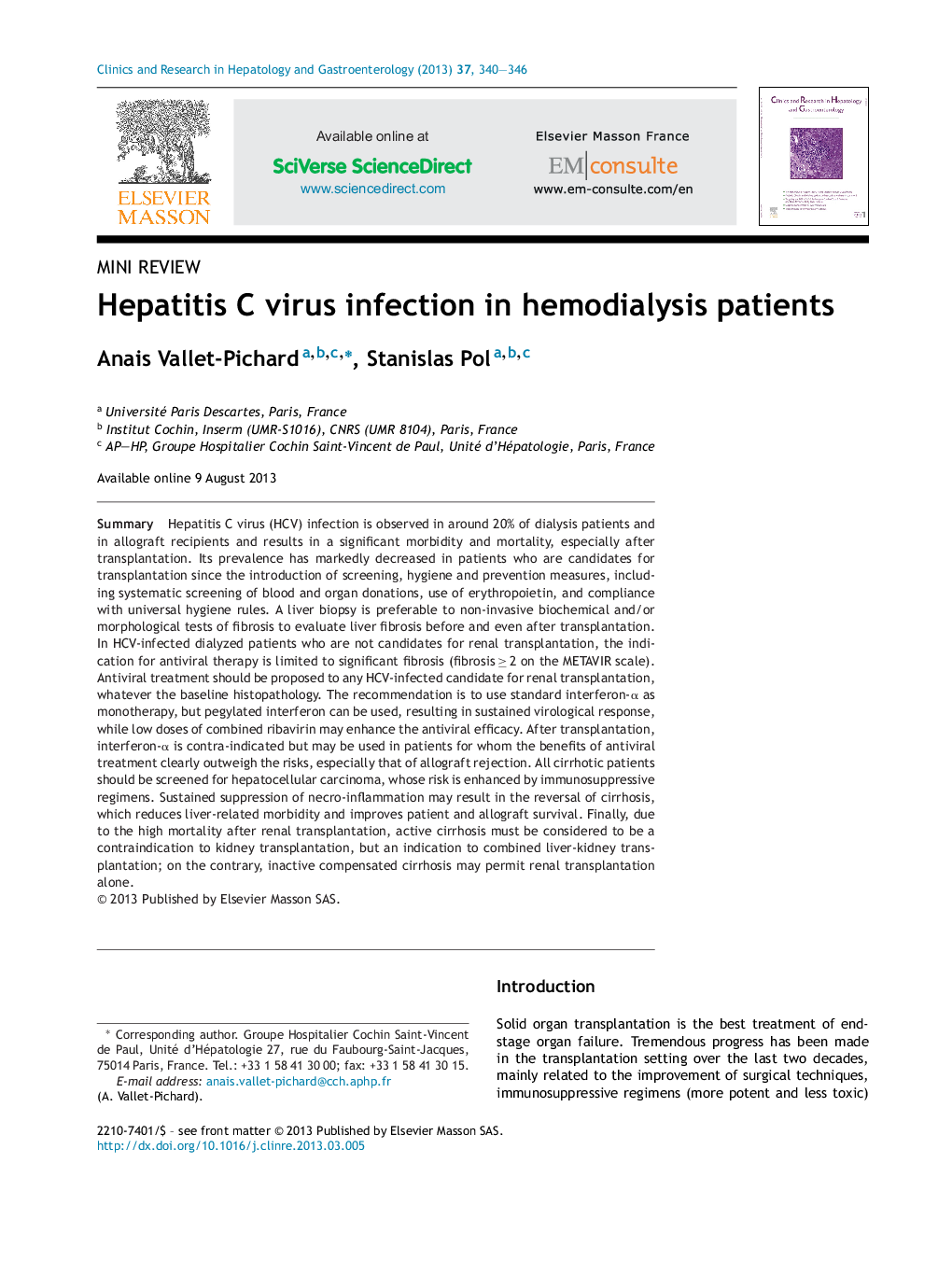| کد مقاله | کد نشریه | سال انتشار | مقاله انگلیسی | نسخه تمام متن |
|---|---|---|---|---|
| 3286616 | 1209305 | 2013 | 7 صفحه PDF | دانلود رایگان |

SummaryHepatitis C virus (HCV) infection is observed in around 20% of dialysis patients and in allograft recipients and results in a significant morbidity and mortality, especially after transplantation. Its prevalence has markedly decreased in patients who are candidates for transplantation since the introduction of screening, hygiene and prevention measures, including systematic screening of blood and organ donations, use of erythropoietin, and compliance with universal hygiene rules. A liver biopsy is preferable to non-invasive biochemical and/or morphological tests of fibrosis to evaluate liver fibrosis before and even after transplantation. In HCV-infected dialyzed patients who are not candidates for renal transplantation, the indication for antiviral therapy is limited to significant fibrosis (fibrosis ≥ 2 on the METAVIR scale). Antiviral treatment should be proposed to any HCV-infected candidate for renal transplantation, whatever the baseline histopathology. The recommendation is to use standard interferon-α as monotherapy, but pegylated interferon can be used, resulting in sustained virological response, while low doses of combined ribavirin may enhance the antiviral efficacy. After transplantation, interferon-α is contra-indicated but may be used in patients for whom the benefits of antiviral treatment clearly outweigh the risks, especially that of allograft rejection. All cirrhotic patients should be screened for hepatocellular carcinoma, whose risk is enhanced by immunosuppressive regimens. Sustained suppression of necro-inflammation may result in the reversal of cirrhosis, which reduces liver-related morbidity and improves patient and allograft survival. Finally, due to the high mortality after renal transplantation, active cirrhosis must be considered to be a contraindication to kidney transplantation, but an indication to combined liver-kidney transplantation; on the contrary, inactive compensated cirrhosis may permit renal transplantation alone.
Journal: Clinics and Research in Hepatology and Gastroenterology - Volume 37, Issue 4, September 2013, Pages 340–346